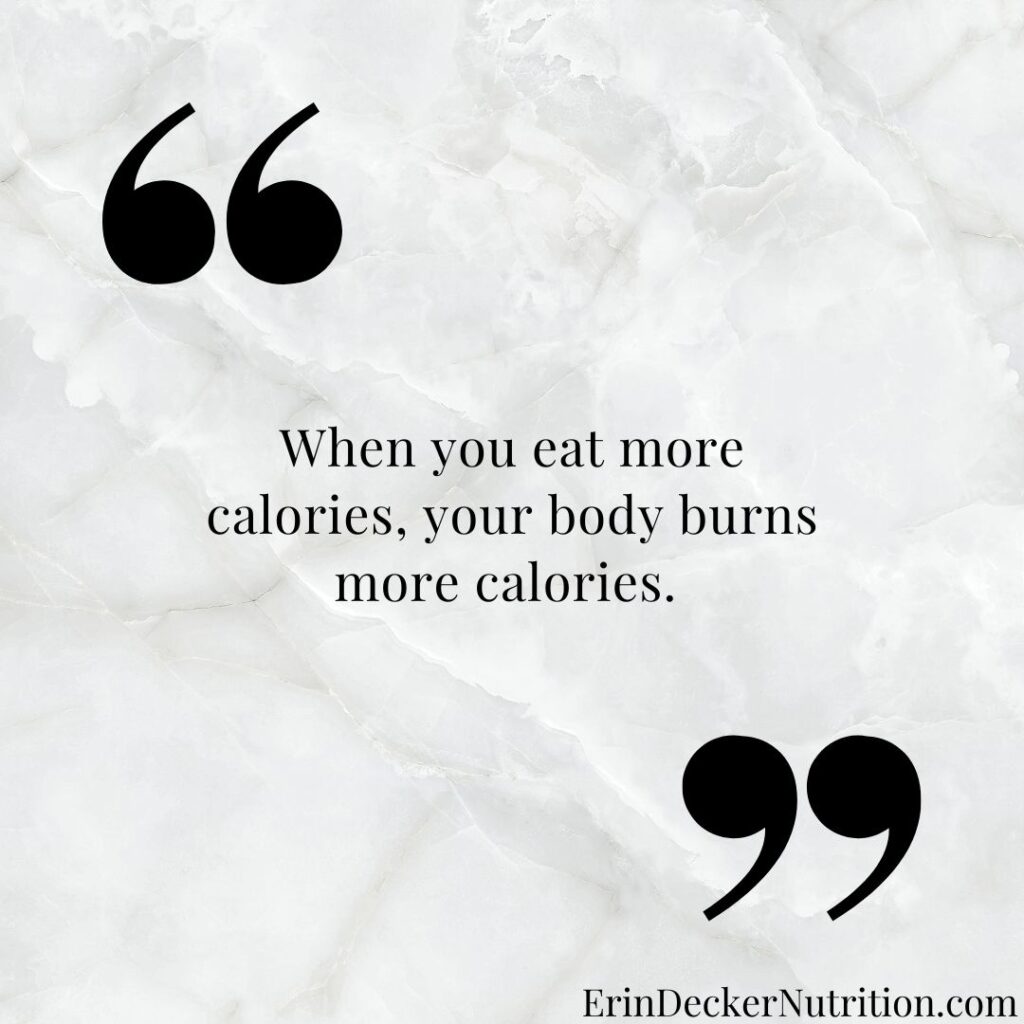When we feel out of control around food and fear that too many calories were consumed, fasting gives us a chance to “reset”. However, fasting after a binge comes with some unintended consequences. Here I’ll outline some of the risks of fasting after a binge.
What is a binge?
A binge describes eating a large amount of food in a discrete period of time (e.g. 1 hour) while feeling out of control.
Typically, binge eating leads to feelings of distress, guilt, shame, and discomfort. Oftentimes, my clients feel compelled to do something after the binge to “make up” for the amount of food that they consumed. This is where fasting comes in.
Why would someone fast after a binge?
Many of my clients feel out of control around food, especially after binge eating. Fasting, or restricting food intake, may give someone a feeling of control back following a binge episode.
Fasting may also allow you to feel like you are “making up” for all of the calories you ate during the binge. I have heard clients say they don’t need to eat since they ate so much while binge eating.
However, this is not the case. Your body still needs (and deserves) to eat even if you overdid it the day, week, month, or year prior. Here’s why:
How the body responds to a binge
Diet culture tells us that excess calories cause weight gain. So, fasting after a binge makes logical sense if you don’t want to gain weight.
HOWEVER, your body doesn’t automatically store extra calories as fat. In fact, your body will actually increase its metabolism to burn the extra calories that you consumed.
Don’t believe me? Think about it using the opposite scenario: a weight loss plateau.
Despite consuming fewer and fewer calories during your last diet, your weight didn’t budge past “x” pounds. If our bodies were the robots that diet culture leads us to believe, you would continue to lose weight in a linear fashion, assuming you ate fewer calories.
The same thing can happen with weight gain. Genetics determine a natural set-point for your body and, once you reach this, weight gain will stall regardless of how many calories you consume.
What happens when you fast?
Fasting is a form of food restriction – oftentimes meaning going without food at all.
For many of my clients, appetite may be naturally lower following a binge depending on how much food was consumed. For others, appetite may or not be affected at all.
Psychologically, fasting may set you up for an obsession with food. This is because of the ironic process theory: when you tell yourself not to do or think about something, naturally it is all you can think about!
Fasting, contrary to overeating, will lead to a sluggish metabolism. Your body responds to a reduced food intake by slowing down how much energy it burns. You might notice decreased energy, brain fog, trouble concentrating, and digestive problems.
Simply put: when you eat more calories, your body burns more calories. When you restrict calories, your body burns fewer calories.

What are the risks of fasting after a binge?
Fasting after a binge reinforces the binge-restrict cycle (AKA the dieting cycle). When you enter a state of restriction, hunger hormones such as ghrelin and neuropeptide Y increase. The longer the fast, the higher these hormones. This can lead to what the authors of intuitive eating call “primal hunger”. Primal hunger is a biological drive to eat. This type of hunger usually does not precede mindful decisions – as a result, you may end up binge eating once again.
Binge-restrict patterns are common among eating disorders and those with subclinical disordered relationships with food. They are associated with negative body image, anxiety, depression, poor diet quality, and chronic disease.
Fasting after a binge may also reinforce the mentality that food is morally bad and must be compensated for. It can be viewed as a type of purging, an unhealthy coping mechanism used to rid the body of food consumed.
What to do instead
Here are some tips to get started, and for more suggestions, check out my post on what to do after binge eating.
Practice self-compassion
Many of my clients are intense perfectionists. Perfectionists struggle with being kind to themselves. We are our own worst critic (I consider myself a recovering perfectionist!)
In order to move past a binge healthfully, it is important to give yourself some grace. Remind yourself that you are not alone. Binge eating is a natural response to restriction, either physiological or psychological (i.e., the mere thought of restriction could trigger it.)
Resume an adequate diet
I know, you’re probably rolling your eyes saying you don’t need to eat more, that that’s not your problem!
But give it a chance. Give yourself permission to eat until truly satisfied. Make sure you are eating:
- At least three meals
- At least three snacks
- At least 3 food groups in each meal
- Every three hours
Investigate what triggered the binge
While a binge can be a natural response to restriction, it can also be a means of coping with uncomfortable feelings and emotions.
In order to investigate what triggered the binge, start by removing shame, and look at the situation with curiosity. Ask yourself: who, what, where, when, why.
- Who was present or involved before the binge?
- What was going on leading up to the binge?
- Where did the binge happen?
- When did the binge happen?
- Why did the binge happen?
Learn and move on
Binge eating can be uncomfortable and frustrating. After you complete the steps outlined above, allow yourself to move on. Don’t dwell on it.
Looking for more support? Sign up for my mailing list!

Fasting and binging aren’t healthy when done together. In fact, as you mentioned here, maintaining an adequate diet is one of the best courses of action to take.